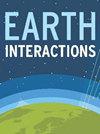Community Responses to Fire: A Global Meta-Analysis Unravels the Contrasting Responses of Fauna to Fire
IF 1.1
4区 地球科学
Q3 GEOSCIENCES, MULTIDISCIPLINARY
引用次数: 1
Abstract
Globally, wildfires and prescribed fires are becoming more prevalent and are known to affect plant and animals in diverse ecosystems. Understanding the responses of animal communities to fire is a central issue in conservation and a panacea to predicting how fire regimes may affect communities and food webs. Here, a global meta-analysis of 2581 observations extracted from 208 empirical studies were used to investigate the effect of fire on aboveground and belowground fauna (e.g., bacteria, fungi, small mammals, arthropods). Overall, results revealed that fire had a negative effect on biomass, abundance, richness, evenness, and diversity of all faunas. Similarly, when considering wildfires and prescribed fires the data revealed that both fire regimes have negative effects on fauna. Similarly, fire had negative impacts on aboveground and aboveground fauna across most biomes and continents of the world. Moreover, there was little evidence of changes in pH, moisture and soil depth on soil organisms suggesting that other factors may drive community changes following a fire disturbance. Future research in fire ecology should consider the effects of fire across several species and across larger geospatial scales. In addition, fire effects on faunal community structure must be studied under contrasting global fire regimes and in light of the effects of climate change.社区对火灾的反应:一项全球荟萃分析揭示了动物对火灾的对比反应
在全球范围内,野火和规定火灾正变得越来越普遍,并且已知会影响各种生态系统中的动植物。了解动物群落对火灾的反应是保护的核心问题,也是预测火灾制度如何影响群落和食物网的灵丹妙药。本文对来自208个实证研究的2581个观测数据进行了荟萃分析,探讨了火灾对地上和地下动物(如细菌、真菌、小型哺乳动物、节肢动物)的影响。结果表明,火灾对所有动物的生物量、丰度、丰富度、均匀度和多样性均有负面影响。同样,当考虑野火和规定火灾时,数据显示两种火灾制度对动物都有负面影响。同样,火灾对世界上大多数生物群系和大陆上的地上和地上动物都有负面影响。此外,几乎没有证据表明pH、湿度和土壤深度对土壤生物的影响,这表明其他因素可能驱动火灾干扰后土壤生物群落的变化。未来的火灾生态学研究应考虑火灾对不同物种和更大地理空间尺度的影响。此外,必须在对比全球火灾制度和气候变化影响的情况下研究火灾对动物群落结构的影响。
本文章由计算机程序翻译,如有差异,请以英文原文为准。
求助全文
约1分钟内获得全文
求助全文
来源期刊

Earth Interactions
地学-地球科学综合
CiteScore
2.70
自引率
5.00%
发文量
16
审稿时长
>12 weeks
期刊介绍:
Publishes research on the interactions among the atmosphere, hydrosphere, biosphere, cryosphere, and lithosphere, including, but not limited to, research on human impacts, such as land cover change, irrigation, dams/reservoirs, urbanization, pollution, and landslides. Earth Interactions is a joint publication of the American Meteorological Society, American Geophysical Union, and American Association of Geographers.
 求助内容:
求助内容: 应助结果提醒方式:
应助结果提醒方式:


